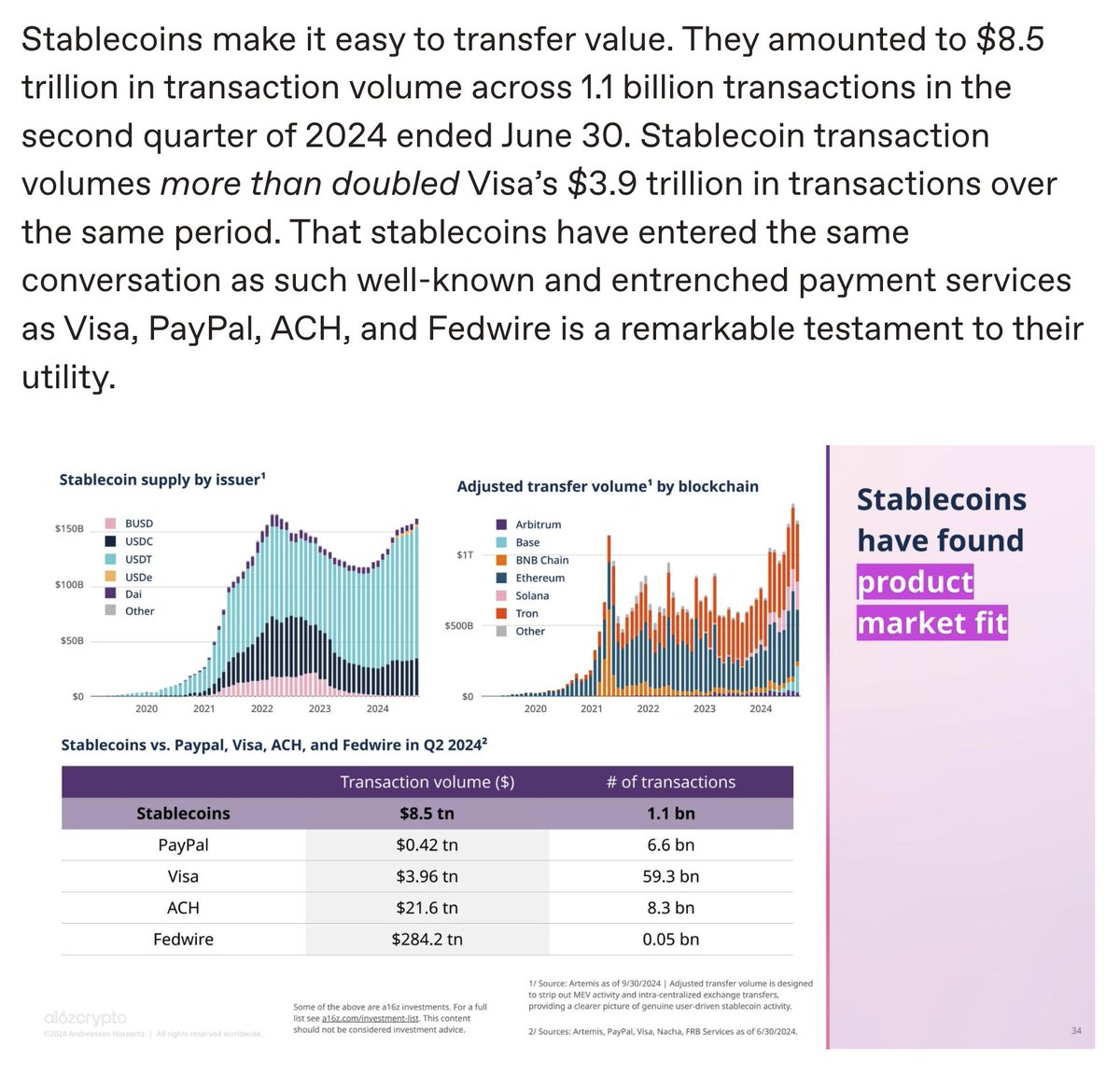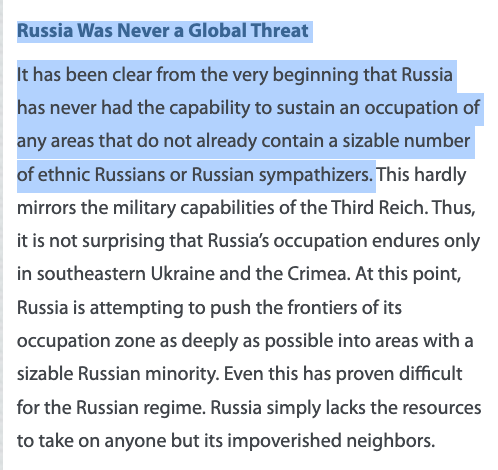I react with wry amusement the economists' propensity to talk about things without definition. The Budish paper "Trust at Scale: the Economics Limits of Cryptocurrencies and Blockchains" spends 62 pages comparing one form of trust with another, with scant regard to what trust is.
It reminds me of the old economists trick of saying that money has a) a unit of account, b) a store of value, and c) a means of exchange. This all seems to be comfortable to the entire world of economics, without anyone realising that what was described was not a definition, it was a checklist of characteristics. It's like saying a bird takes off, flies, lands, without realising that others do this too...
It reminds me of the old economists trick of saying that money has a) a unit of account, b) a store of value, and c) a means of exchange. This all seems to be comfortable to the entire world of economics, without anyone realising that what was described was not a definition, it was a checklist of characteristics. It's like saying a bird takes off, flies, lands, without realising that others do this too...
What then is a bird? What is money? What is trust? These questions seem not to trouble people, nor even economists. But woe betide when a new contender arrives, and the knee jerk reaction is to compare the old to the new, and declare one good one bad.
Budish compares 'trust' in blockchains to 'traditional trust' which by introspection turns out to be the legal system of laws, courts, disputes, and all that rigmarole. Is that trust?
Well, it has some characteristics, it can be checklisted. But ask the people if they trust the courts, and the answer is not so positive - in many countries courts are simply not trusted for pretty good reasons.
Budish compares 'trust' in blockchains to 'traditional trust' which by introspection turns out to be the legal system of laws, courts, disputes, and all that rigmarole. Is that trust?
Well, it has some characteristics, it can be checklisted. But ask the people if they trust the courts, and the answer is not so positive - in many countries courts are simply not trusted for pretty good reasons.

When Budish talks about traditional trust as being related to the legal side of life, he's referring to a very abstract societal concept. When an ordinary person is asked about trust, she's not so abstract. It's an entirely different thing, and comparisons are slippery.
Page 53 does drill down a little into 'models' and compares Nakamoto trust, Repeated interaction, Credible deterrance, Collateral, and others... but ask a mother which of those is what she means when she says "she don't trust da courts, no siree," and it becomes somewhat clear that simple mathematical models aren't going to cut the trust mustard.
How important is this? Well, somewhat. The 1990s Certificate Authority business and countless supporting acts such as the Digital Signature Directive tried to build the Trust Business... and failed. Mainstream media preach trust in journalism and nobody trusts them. The health authorities of the world fluffed the Covid thing and now nobody trusts them. Politicians failed on the energy & CO2 thing, and now there's widespread disrespect as fires, floods reveal the politicians as problems not solutions. Countries ran around and started wars & genocides & regime changes & the like, and they are now not only distrusted but hated.
Yeah, it's somewhat important.
We probably need a new interrogation into this topic. Trust in politicians, trust in neighbours, trust in instititions, in countries... examples abound of how it is not to be found. Until someone can capture and define the term properly, society is in a dark place.
Eric Budish, "Trust at Scale: the Economics Limits of Cryptocurrencies and Blockchains." The Quarterly Journal of Economics, Volume 140, Issue 1, February 2025, Pages 1–62, doi.org/10.1093/qje/qj…
academic.oup.com/qje/article/14…
h/t to x.com/Kiffmeister/st…
Page 53 does drill down a little into 'models' and compares Nakamoto trust, Repeated interaction, Credible deterrance, Collateral, and others... but ask a mother which of those is what she means when she says "she don't trust da courts, no siree," and it becomes somewhat clear that simple mathematical models aren't going to cut the trust mustard.
How important is this? Well, somewhat. The 1990s Certificate Authority business and countless supporting acts such as the Digital Signature Directive tried to build the Trust Business... and failed. Mainstream media preach trust in journalism and nobody trusts them. The health authorities of the world fluffed the Covid thing and now nobody trusts them. Politicians failed on the energy & CO2 thing, and now there's widespread disrespect as fires, floods reveal the politicians as problems not solutions. Countries ran around and started wars & genocides & regime changes & the like, and they are now not only distrusted but hated.
Yeah, it's somewhat important.
We probably need a new interrogation into this topic. Trust in politicians, trust in neighbours, trust in instititions, in countries... examples abound of how it is not to be found. Until someone can capture and define the term properly, society is in a dark place.
Eric Budish, "Trust at Scale: the Economics Limits of Cryptocurrencies and Blockchains." The Quarterly Journal of Economics, Volume 140, Issue 1, February 2025, Pages 1–62, doi.org/10.1093/qje/qj…
academic.oup.com/qje/article/14…
h/t to x.com/Kiffmeister/st…
@threadreaderapp unroll please
Postscript: some comments from the paper on what Trust might be:
Throughout the article, when I use the phrase “Nakamoto trust” or “blockchain-based trust” I am referring to Nakamoto’s overall idea of blockchain-based permissionless consensus, in its pure form without implicit support from the rule of law.
…
There are many other sources of trust that are familiar to economists besides rule of law, such as reputations, brands, relationships, collateral, and cultural or organizational norms.9
9. Foundational work on trust from rule of law includes Schelling (1960), Becker (1968), Hart (1995), Shleifer and Vishny (1997), and La Porta et al. (1998). Important work on other sources of trust includes Nelson (1974), Kreps et al. (1982), Fudenberg, Levine, and Maskin (1994), Tadelis (1999) on brands and reputations; Baker, Gibbons, and Murphy (2002), Levin (2003) on relationships; Kandori (1992), Holmstrom and Milgrom (1994), La Porta et al. (1997), Guiso, Sapienza, and Zingales (2006) on norms.
…
It bears emphasizing that these sources of trust often work in conjunction with rule of law, sometimes implicitly. For ex ample, a customer trusts Starbucks to provide good coffee because of its brand but also because it is illegal for a different entity to impersonate Starbucks’ name and imagery. In a Levin (2003) relational contract, the employee trusts that if they put in high effort they will get paid a performance bonus, but in the background, it is also the case that the employee knows the employer will pay at least the promised minimum because of rule of law, and the employer trusts the employee not to rob the company because of rule of law.10
…
A second possibility is legal punishment, which certainly would work but concedes that Nakamoto trust fails without support from rule of law.
…
…then some external source of trust is required for security, such as rule of law.
...
In this section, I return to the contrast discussed in the introduction between Nakamoto trust and traditional trust supported by the rule of law and complementary sources, such as reputations and relationships. The essential difference is economies of scale.
I laboriously searched the paper for the word trust and found these snippets interesting, but no diana.
Throughout the article, when I use the phrase “Nakamoto trust” or “blockchain-based trust” I am referring to Nakamoto’s overall idea of blockchain-based permissionless consensus, in its pure form without implicit support from the rule of law.
…
There are many other sources of trust that are familiar to economists besides rule of law, such as reputations, brands, relationships, collateral, and cultural or organizational norms.9
9. Foundational work on trust from rule of law includes Schelling (1960), Becker (1968), Hart (1995), Shleifer and Vishny (1997), and La Porta et al. (1998). Important work on other sources of trust includes Nelson (1974), Kreps et al. (1982), Fudenberg, Levine, and Maskin (1994), Tadelis (1999) on brands and reputations; Baker, Gibbons, and Murphy (2002), Levin (2003) on relationships; Kandori (1992), Holmstrom and Milgrom (1994), La Porta et al. (1997), Guiso, Sapienza, and Zingales (2006) on norms.
…
It bears emphasizing that these sources of trust often work in conjunction with rule of law, sometimes implicitly. For ex ample, a customer trusts Starbucks to provide good coffee because of its brand but also because it is illegal for a different entity to impersonate Starbucks’ name and imagery. In a Levin (2003) relational contract, the employee trusts that if they put in high effort they will get paid a performance bonus, but in the background, it is also the case that the employee knows the employer will pay at least the promised minimum because of rule of law, and the employer trusts the employee not to rob the company because of rule of law.10
…
A second possibility is legal punishment, which certainly would work but concedes that Nakamoto trust fails without support from rule of law.
…
…then some external source of trust is required for security, such as rule of law.
...
In this section, I return to the contrast discussed in the introduction between Nakamoto trust and traditional trust supported by the rule of law and complementary sources, such as reputations and relationships. The essential difference is economies of scale.
I laboriously searched the paper for the word trust and found these snippets interesting, but no diana.

@threadreaderapp unroll please
• • •
Missing some Tweet in this thread? You can try to
force a refresh










